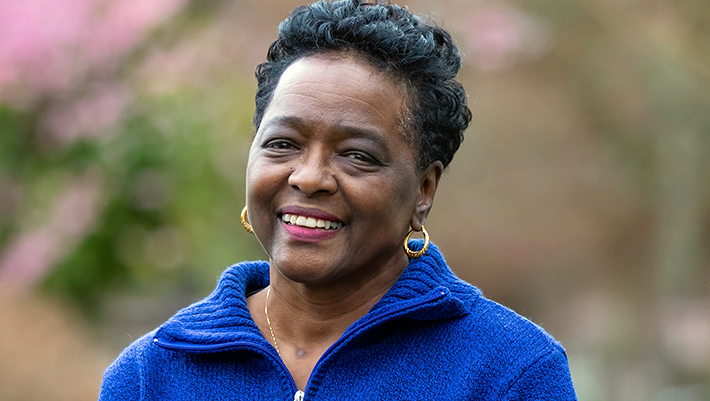
By Cynthia Flash
Special To The Medium
Two and a half years ago, retired library director Gloria Leonard got another “job.” She didn’t choose it and agreed reluctantly. But it’s saving her life.
Now 73, Gloria has fought diabetes for 30 years. Eventually, her doctor told her the diabetes had damaged her kidneys so much that she had chronic kidney failure and would need dialysis to survive.
Gloria resisted until her daughter Melanie Smith intervened and accompanied her to see nephrologist Bruce O’Neill.
“I gave Dr. O’Neill permission to tell Melanie the situation, which he did,” Gloria said. “Melanie said, `this is the first time I have heard this. Is it serious and when does she need to start dialysis?’ Dr. O’Neill said `right away.’”
Melanie insisted that Gloria accept the life-saving treatment, which she needs three times a week. Gloria started dialysis the next week.
“How roles between parents and their children change when you get old and/or have a chronic illness,” Gloria said.
Gloria decided to view her dialysis as a part-time job. So off she goes, at 2 p.m. every Monday, Wednesday and Friday to Northwest Kidney Centers’ new Rainier Beach dialysis clinic. There she sits for four hours each visit as the dialysis machine cleanses her blood of waste and fluid – replacing the work that her kidneys are no longer able to do.
Her fiancé, Sylvester Hill holds her hand at the beginning of each session, then she is on her own to read, play bridge on her iPhone, watch TV and catch up by phone with her son James in Atlanta.
“Because I was depressed and psychologically not with it, I decided if it was going to be a live-or-die situation that I had to find a way to make this work for me,” said Gloria, who previously worked at the University of Washington, Seattle Public Libraries and The Washington Talking Book & Braille Library.
“I retired in 2008. At that time, I was director for the state library for the blind and I loved it. I decided I’m going to pretend that I’m going to work for four hours and that made me be able to accept my new “normal,” that I am on dialysis,” she said.
Now that Gloria has adjusted, she’s not letting dialysis slow her down. She and Sylvester teach bridge at the Central Area Senior Center. She attends New Beginnings Christian Fellowship in Kent and she spends time with her daughter in Seattle, chats regularly with her son, and catches up with her granddaughter, Tyler, who also lives in Atlanta.
March is National Kidney Month and March 12 is World Kidney Day. Fifteen percent of Americans have chronic kidney disease, and the vast majority, 90 percent, of those don’t know it because kidney damage usually occurs without symptoms.
Diabetes and high blood pressure are the two leading causes of kidney disease.
Other risk factors include heart disease, smoking, family history of kidney disease, and being African American, Asian American or Native American. People who are overweight and those over age 60 are also at risk.
“People with a risk factor for kidney disease should have their doctors check their blood pressure and do appropriate lab tests, such as possible blood and urine tests to check their kidney health,” said Dr. Suzanne Watnick, chief medical officer at Northwest Kidney Centers.
“The advice that works for heart health is also good for kidney health: eat a healthy diet, be active for 30 minutes five days a week and don’t put harmful things into your body. All of us should minimize the salt we eat by cutting back on fast food and processed foods. And know that long-term use of drugstore NSAID pain relievers such as ibuprofen and naproxen, with brand names such as Aleve and Advil, can be hard on kidneys,” Watnick said.
Diabetes and kidney disease run in Gloria’s family, factors that put her at risk for kidney disease. Her grandmother died of kidney failure at age 59 and her mother, who also had kidney failure and was on dialysis, died of lupus and congestive heart failure at age 77. When she worked as a librarian, she was so busy she didn’t take care of her health, Gloria said.
Now she understands the importance of exercise and a low-salt diet to help control her blood pressure. She takes water aerobics classes and swims at the Rainier Beach pool twice a week, which has helped her keep her weight down and manage the diabetes.
Gloria recently visited her son in Atlanta and received dialysis treatment at a clinic there. A trip of more than a day requires advance planning for dialysis. She’s hoping to eventually receive a kidney transplant and to do some international travel with her family.
“I make the most of my time when I’m not on dialysis,” she said. “And I thank Melanie and Sylvester, my primary caregivers, along with James, for helping me adjust my perspective. Dialysis works for me.”
Find more information about kidney disease prevention and treatment at www.nwkidney.org. You can also find out if you are at risk by taking the quiz at www.nwkidney.org/quiz.















